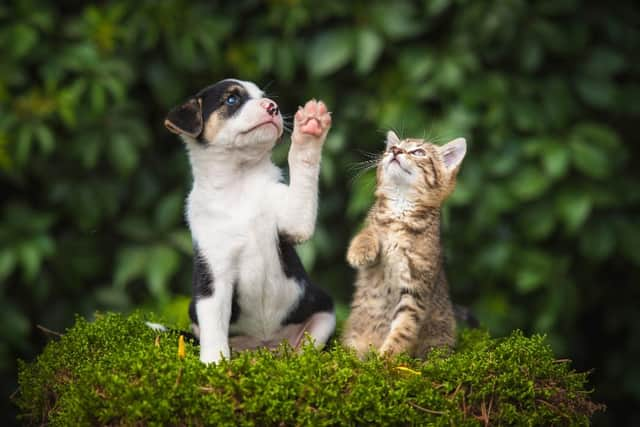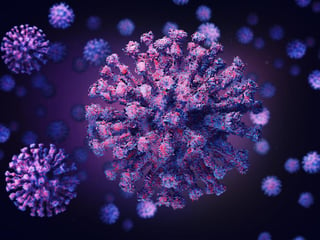Do dogs and cats need a Covid vaccine? Why scientists have warned that pets may require jabs
The Covid-19 vaccine rollout is deemed as the key to ending the fight against the virus.
Millions of people in the UK have already received their first dose of either the Pfizer-BioNTech or Oxford-AstraZeneca jabs.
Advertisement
Hide AdAdvertisement
Hide AdBut now scientists have said cats and dogs may also need to be inoculated to stop the spread of coronavirus.


Although it is not clear how many domestic pets have been infected in the country, experts think that the rates may be similar to those of people.
Here’s everything you need to know about whether your pet will need a Covid-19 jab.
What animals have been found to catch Covid?
Since the start of the pandemic, scientists have been concerned about the effects of coronavirus on pets, livestock and wildlife.
Experts from the University of East Anglia (UEA), Norwich-based research facility the Earlham Institute, and the University of Minnesota, have confirmed that the virus can infect a wide range of animals.
That includes domesticated species like cats, dogs and mink, and other wild animals.
However, in studies pet symptoms have been found to be mild, if they get any at all.
Should pets be vaccinated against Covid?
The scientists from UEA have said domesticated animals may need a vaccine to “halt further virus evolution”.
Advertisement
Hide AdAdvertisement
Hide AdIn an editorial for the journal Virulence, they warned that mutations of the virus in animals, followed by the infection of humans, “poses a significant long-term risk to public health".
Prof van Oosterhout and Prof Tyler wrote the editorial along with director of the Earlham Institute Neil Hall and Hinh Ly of the University of Minnesota.
The scientists wrote: "Continued virus evolution in reservoir animal hosts, followed by spill back events into susceptible human hosts, poses a significant long-term risk to public health.
“It is not unthinkable that vaccination of some domesticated animal species might… be necessary to curb the spread of the infection.”
Clinical trials for a vaccine for domestic animals are already underway in Russia.
The details of the vaccine have not been made public, but the government has claimed doses could be made available in the coming months.
Could pets spread Covid to humans?
While it is known that dogs and cats can contract coronavirus, there are no known cases in which there has been spill back to humans, according to one of the editorial’s authors.
But Cock van Oosterhout, professor of evolutionary genetics at UEA, said it “makes sense” to develop a pet vaccine as a precautionary measure to reduce this risk.
Advertisement
Hide AdAdvertisement
Hide AdHe said: "What we need to be as a human society, we really need to be prepared for any eventuality when it comes to Covid.
"I think the best way to do this is indeed consider development of vaccines for animals as well.
"Interestingly the Russians have already started to develop a vaccine for pets, which there's very little information about."
In November 2020, the entire mink population in Denmark was culled after hundreds of farms suffered outbreaks of coronavirus and authorities found mutated variants of the virus among humans.
Kevin Tyler, editor-in-chief of Virulence, said: "The risk is that, as long as there are these reservoirs, that it starts to pass as it did in the mink from animal to animal, and then starts to evolve animal-specific strains, but then they spill back into the human population and you end up essentially with a new virus which is related which causes the whole thing all over again."
He added: “If you were thinking about domestic animals, companion animals, then you might think about whether you could vaccinate to stop that from happening".
But he said spill back from animal strains into the human population is "not an obvious risk yet."
